Knowledge will forever govern
ignorance, and a people who mean to be their own governors,
must arm themselves with the power knowledge gives.
A popular government without popular information or the means of
acquiring it, is but a prologue to a farce or a tragedy or perhaps
both. -- James
Madison --
 auf Deutsch:
http://wkeim.bplaced.net/if-ngo.htm
auf Deutsch:
http://wkeim.bplaced.net/if-ngo.htm
Walter Keim, Email: walter.keim@gmail.com
Torshaugv. 2 C
N-7020 Trondheim, 26. January 2012
To:
Transparency, Deutsche Gesellschaft für
Informationsfreiheit, Aktionsbündnis Informationsfreiheit für Bayern,
Greenpeace, Humanistische Union, netzwerk recherche, Mehr Demokratie, German Institute for Human Rights, foianet@foiadvocates.info,
fragdenstaat@lists.okfn.org,
okfn-de@lists.okfn.org,
Open
Government, Pirate
party
Copy: GRECO, Transparency
International, European
Commissioner for home affairs (EU
COM(2011) 308: Fighting
Corruption in the EU), OSCE,
OECD,
WTO, The European Union Agency for Fundamental Rights (FRA)
What can be done to improve transparency and fight against corruption
in Germany?
Summary: Germany has to improve the federal FOI law, adopt FOI laws in 5
federal states (Bundesländer), ratify CoE and UN conventions against
corruption, improve transparency of funding of political parties and join
the Open Government Partnership to catch up with Europe, America,
OSCE, OECD, G 20 and BRIC states (see appendix
K: weakness no. 2, 3, 4, 8, 34, 35 and 52 of National Integrity
Report Transparency Germany).
Freedom of Information, Transparency and
Anti-corruption Treaties in Germany
The human
right of access to public documents (ICCPR,
ECHR) is recognized as
precondition for democracy and essential in the fight against corruption.
10 years ago development showed (Appendix G: Will
Germany abandon Freedom of Information? Appendix H: Banana
Republic Germany), that Germany was least developed in Europe.
Now many countries outside Europe are more advanced then Germany looking at
transparency and fight of corruption.
- 88 states with approx. 5.5
billion inhabitants i. e. 78% of the world population give better
access to information then the federal Freedom of Information Law in
Germany (http://www.rti-rating.org/country-data/).
- more than 115 states (http://right2info.org/laws)
with more then 5.9 billion inhabitants
i. e. 84 % of the worlds population adopted FOI laws or provisions in
constitutions. 5 German states with half of the population lack FOI
laws.
- The UN Convention against Corruption is ratified by more than 159
states with more then 6,5 billion inhabitants, but not by Germany (Appendix
A).
- Germany did not ratify the Criminal Law Convention on Corruption and
does not follow Recommendation Rec(2003)4 on common rules against
corruption in the funding of political parties and electoral campaigns
of the Council of Europe as GRECO (Group of States against Corruption)
suggested 4 December 2009 (Appendix
B, Appendix
C).
- Germany is the only state in Europe which has not ratified any of
these to conventions against corruption (Appendix
D).
GRECO (Group of States against
Corruption) concludes 29. December 2011 in report Greco RC-III (2011) 9E
that Germany has implemented or satisfactorily dealt with only four of the
twenty recommendations contained in the Third Round Evaluation Report (Appendix
3). Germany has to report on progress 30. June 2012 at the latest. But
nothing happened up to now.
51 states
participate in the Open Government Partnership for transparent accountable
governments. This OGP
initiative wants governments to commit to openness, participation
for citizens, fight against corruption and use of new technologies. But
Germany does not participate, even it would be very necessary.
Germany has to improve the federal FOI law, adopt FOI laws in 5 federal
states (Bundesländer), ratify CoE and UN conventions against corruption and
improve transparency of sideline jobs for members of parliaments and funding
of political parties to catch up with other states in Europe, America, OSCE,
OECD (see weakness no. 2, 3, 4, 8, 34, 35 and 52 of National Integrity
Report by Transparency Germany).
But how does Transparency Germany come to the overall conclusion: Germany
gets good to very good testimony, concerning anti-corruption prevention and
repression: ("Insgesamt
wird Deutschland ein gutes bis sehr gutes Zeugnis zur
Korruptionsprävention und –repression ausgestellt"). Here is a human
right missing which is a precondition for democracy.
Therefore I ask for support for these suggestions:
- Letter to UN Human Rights commission because the human right of access
to public documents is missing in 5 federal states (see Appendix
1),
- Complaint against refusal of access of the reasons why Bavaria does
not meat the suggestions of the CoE Human Rights Commissioner (Appendix
2).
UN,
OSCE and AOS Special Mandates for Protecting Freedom of Expression
confirmed in Joint Declaration of 6. December 2004,
that access to information is a human right: (Appendix
4):
"The right to access information held by public authorities is a
fundamental human right which should be given effect at the national
level through comprehensive legislation (for example Freedom of
Information Acts) based on the principle
of maximum disclosure, establishing a presumption that all
information is accessible subject only to a narrow system of
exceptions."
The federal FOI law violates the principle
of maximum disclosure. 5 federal states violate the human
right of access to public documents. i. e. no FOI law is adopted.
The "General Comment No. 34 on Article 19 of the ICCPR" confirms
this (Appendix
J):
"18.
Article 19, paragraph 2 embraces a general right of access to
information held by public bodies. Such information includes all records
held by a public body, regardless of the form in which the information
is stored, its source and the date of production."
"19. (...) States parties should also enact the
necessary procedures, whereby one may gain access to information, such
as by means of freedom of information legislation."
The UN Human Rights Committee decided that the International Covenant on
Civil and Political Rights (ICCPR) Article 19 (3)
recognizes the right of individuals and the media to receive state-held
information without requiring a demonstration of direct interest
(Appendix L).
The European Court of Human Rights recognizes the human right of access
to public documents (Appendix
M).
The CoE Human Rights Commissioner suggested to educate administration and
judges in international law and human rights (Appendix
E). The refusal to give access to the reason of Bavaria not to follow
these suggestions (Appendix F), shows
that this suggestion is important.
Regards,
Walter Keim
Copy: German Institute
for Human Rights, Menschenrechtszentrum, BMJ, Lehrstuhl für
Menschenrechtsbildung, Menschenrechtsbeauftragter
der Bundesregierung, Ausschuss
für
Menschenrechte und Humanitäre Hilfe
Appendices:
- 08. April 2011: Freedom
of Information is missing in the 6. state report of Germany according
to Article 40 of the Civil Covenant CCPR
. http://wkeim.bplaced.net/files/foi-ccpr-de.htm
- Draft: Can court give access to reason
why Bavaria refuses to consider the suggestions of the Commissioner of
Human Right? http://wkeim.bplaced.net/files/vgm-2012.htm
- 29. December 2011 in report Greco RC-III (2011) 9E: http://www.coe.int/t/dghl/monitoring/greco/evaluations/round3/GrecoRC3%282011%299_Germany_EN.pdf
Result:
- 21. February 2012: Access Info Europe will draw German NGOs attention
to the issues raised.
- X. Baltic Sea NGO Forum (24. April 2012): The
role of international lawmakers and their respective influence on
national legislation on information access (pdf)
- June 2012: The German Open Government Online Consultation http://e-konsultation.de/opengov/
refused the suggestion that Germany
should join the Open Government Partnership and improve
access to information according to international standards. Why?
- Keim, Walter (14. July 2012): Administrative Court Munich: Enforcement
of the Human Right of Access to Information in Bavaria/Germany
- Keim, Walter (14. September 2012): Parallel
Report to the Human Rights Committee on the occasion of the
consideration of the Sixth Periodic Report of Germany during the
Committee’s 106 th Session (15
October - 2 November 2012), Geneva
- Baltic Sea NGO Forum (18. September 2012): Submission
for the Sixteenth Session of the Working Group on the Universal
Periodic Review: Germany published on website of German
Institute for Human Rights
- November 2012: DIE
BÜRGERLOBBY (=citizens lobby), LobbyControl
are interested in fighting corruption
- GRECO (28. Nov. 2012): Non-Compliance Greco RC-III (2012) 15E Interim
report: http://www.coe.int/t/dghl/monitoring/greco/evaluations/round3/GrecoRC3%282012%2915_Germany_Interim_EN.pdf
- 23. January 2013: Germany submitted
its national report reviewing its human rights situation to the
United Nations ignoring access to information problems
- 30 January 2013: Will the Baltic Sea
NGO Forum participate in the meeting between NGOs and diplomats
for Germany’s UPR in March 2013 in Geneva?
- Sebastian Haselbeck (4 Feb 2013): German government screws up open
data: http://opengovgermany.com/2013/02/04/german-government-screws-up-open-data/
- German Institute for Human Rights (20 February 2013): As a general
policy for its participation in the UPR procedure, the German Institute
for Human Rights will continue to work on the issues it has taken up in
its own UPR stakeholder report.
- There are 269
hits (Accessed March 2013) on "Access to Information" in the UPR-Info.org
database e. g. freedom
of information laws are mentioned for Canada,
Azerbaijan,
Bahrain,
Botswana,
Burkina
Faso, Cape
Verde, Colombia,
Cameroon,
Cuba,
Equatorial
Guinea, France,
Kenya,
Tuvalu,
Uzbekistan
and the REPUBLIC
OF DJIBOUTI submitted by ARTICLE 19. UNESCO
has recommended Freedom of Information laws to all states reviewed
during the 16. UPR session.
- UPR
recommendations to Germany (25. April 2013): Ratification of the
UN Convention against corruption
-
Report of the Working Group on the UPR: A/HRC/WG.6/16/L.7
[relation to Baltic Sea NGO Forum
suggestion No.]:
II. Conclusions and/or recommendations
123. Responses to the following recommendations will be provided by
Germany in due time, but no later than the 24th session of the Human
Rights Council in September 2013:
- "123.22: Ratify the United Nations Convention against Corruption
(Austria);
- 123.28: Withdraw all reservations to human rights instruments to
which Germany is a party, first of all, to the International Covenant
on Civil and Political Rights (Russian Federation); [2]
- 123.42: Align its national legislation with international human
rights standards (Iraq); [indirect 1, 3, approx. 5]
- 123.46: Expand the mandate of the German Institute for Human Rights
to receiving complaints of human rights violations (India); [7]
- 123.49: Secure proper follow-up to the accepted recommendation from
the first UPR cycle and introduce tools that will improve the
effective judicial control over the administrative decisions of the
Office of Youth called Jugendamt (Poland); [approx. 5]
- 123.145. Introduce independent and effective legal and professional
supervision of the Youth Office (Jugendamt) and ensure that the
Jugendamt decisions be in conformity with binding international norms,
including the rulings of the European Court of Human Rights (Turkey);
[approx. 3, approx. 4]
- 123.169. Federal and State Governments, in consultation with civil
society, broaden and intensify existing human rights training in
schools as well as the routine training of police, security, prison
and health personnel, and set up a monitoring and evaluation mechanism
to assess progress (United Kingdom of Great Britain and Northern
Ireland);" [4]
Published on Internet:
- http://en.wikipedia.org/wiki/UNCAC:
160 states have ratified United Nations Convention against Corruption
(UNCAC). Germany has not ratified.
- GRECO Third Evaluation Round (launched in 2007): http://www.coe.int/t/dghl/monitoring/greco/evaluations/round3/ReportsRound3_en.asp
- 4 Dezember 2009, Evaluierungsbericht über Deutschland zur
Kriminalisierung der Korruption (SEV Nrn. 173 und 191, Leitlinie 2): http://www.coe.int/t/dghl/monitoring/greco/evaluations/round3/GrecoEval3(2009)3_Germany_One_DE.pdf
- Lobbypedia - GRECO: http://www.lobbypedia.de/index.php/GRECO
- Report
Human Rights Commissioner Thomas Hammarberg about his visit in
Germany 9. – 11. and 15. – 20. October 2006: http://wkeim.bplaced.net/files/Bericht-des-Menschenrechtskommissars.html, Judges
and administration should be educated in human rights
- 13. December 2011: Application to access documents telling why
suggestions of Commissioner of Human Rights are refused: http://wkeim.bplaced.net/files/ifg-einsicht.htm
- heise.de: Verabschiedet
sich
Deutschland vom Informationsfreiheitsgesetz? http://www.heise.de/tp/deutsch/special/frei/12314/1.html
- heise.de: Bananenrepublik
Deutschland:
http://www.heise.de/tp/r4/artikel/12/12689/1.html
- 21. December 2004: Joint Declaration by the Three Special Mandates for
Protecting Freedom of Expression UN, OSCE and OAS: http://merlin.obs.coe.int/iris/2005/2/article1
- "General Comment No. 34 on Article 19 of the ICCPR"
(International Covenant on Civil and Political Rights): http://www2.ohchr.org/english/bodies/hrc/comments.htm
- January 2012, Transparency Germany: - 84 weaknesses in the fight
against corruption (conventions against Corruption to be ratified,
improve FOI laws): http://www.gp-f.com/en/ak.php#231
- UN Human Rights Committee decisions: http://right2info.org/cases#section-6
- The European Court of Human Rights cases Article 10 of ECHR:
http://right2info.org/cases#section-2
Development:
Visitor No.  since 4. January 2012
since 4. January 2012
[Freedom of
Information] [Petitions] [Human rights] [Constitutional complaint] [Homepage]
This publication is a "hearing": Please send comments to: walter.keim@gmail.com
Warning: I do not accept any
liability that the information on these pages is correct, accurate or up
to date!
You may link this page.
Dark green: Access to Information Law. Light green: Access
to Information in constitution only. Yellow: Access to Information Law
pending
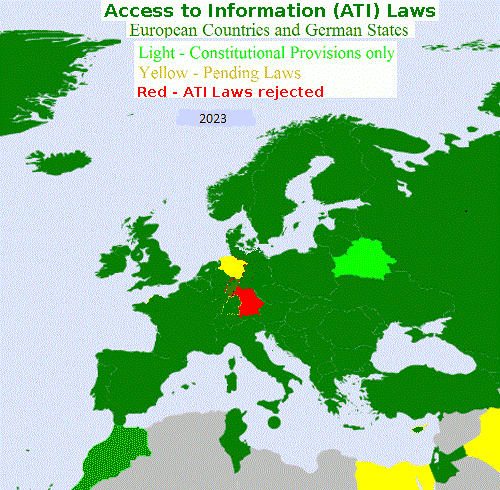
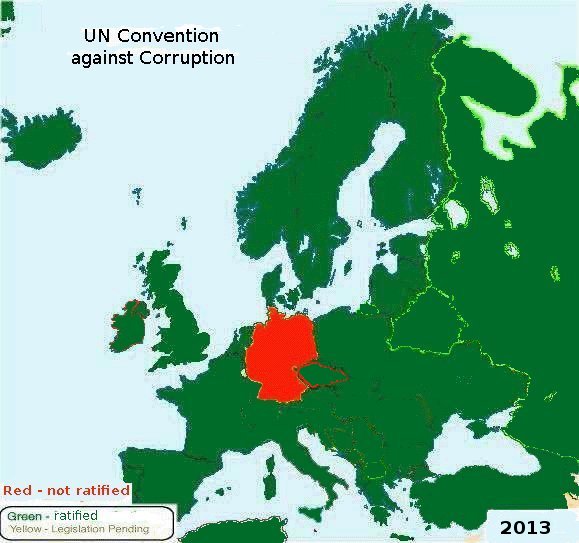
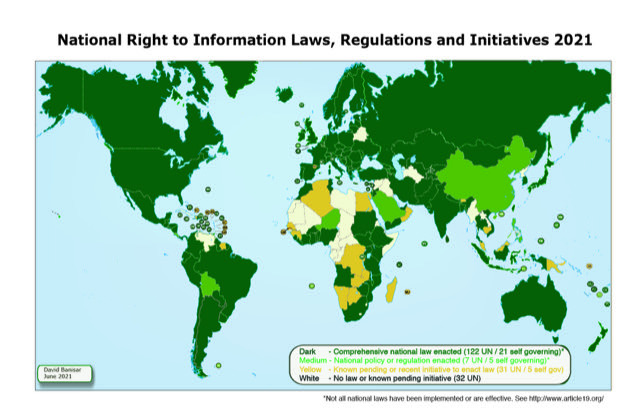
Separation of powers in Europe:
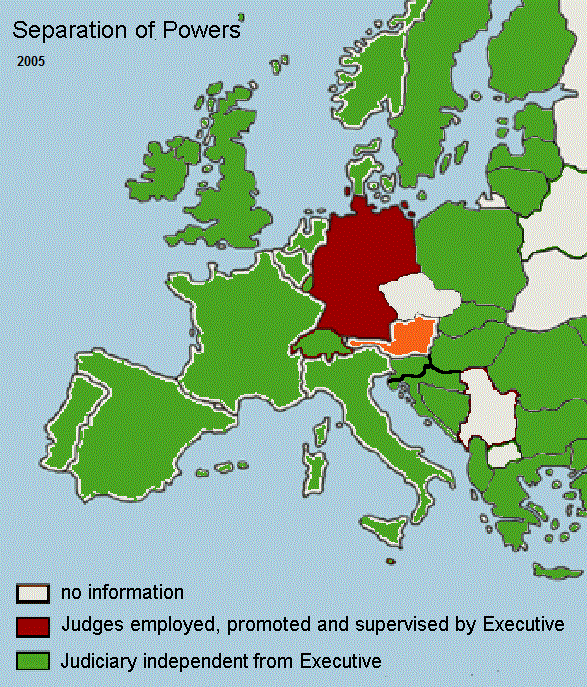
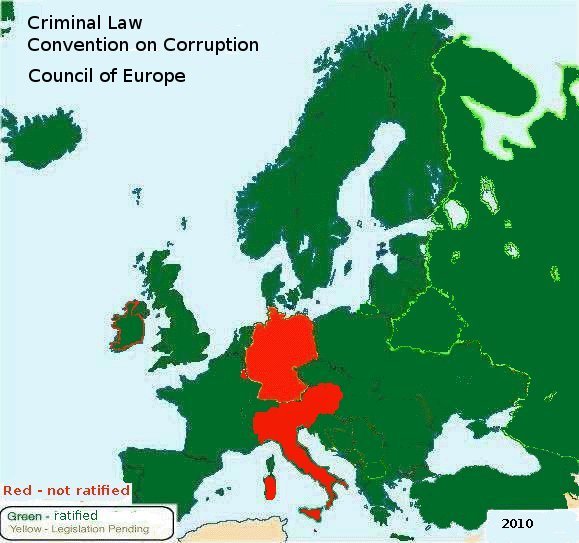
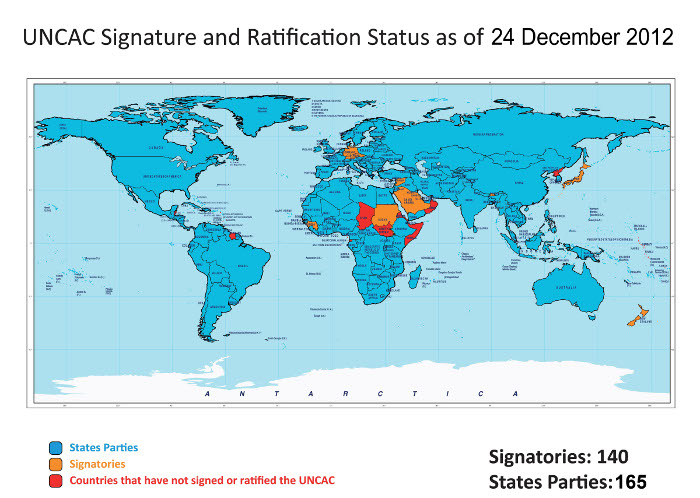
Defamation in Europe:
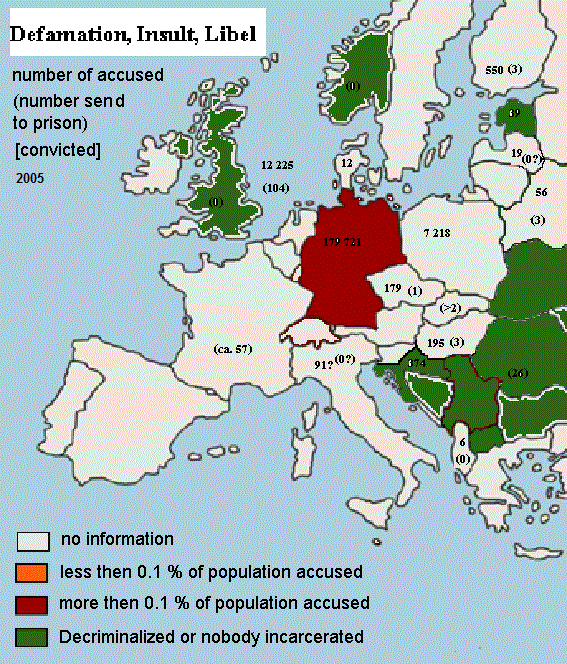
 auf Deutsch:
http://wkeim.bplaced.net/if-ngo.htm
auf Deutsch:
http://wkeim.bplaced.net/if-ngo.htm auf Deutsch:
http://wkeim.bplaced.net/if-ngo.htm
auf Deutsch:
http://wkeim.bplaced.net/if-ngo.htm
since 4. January 2012